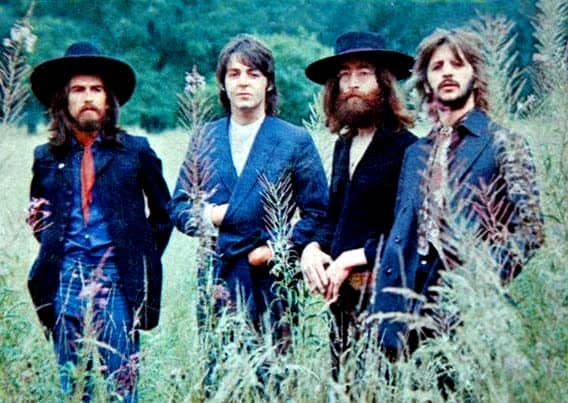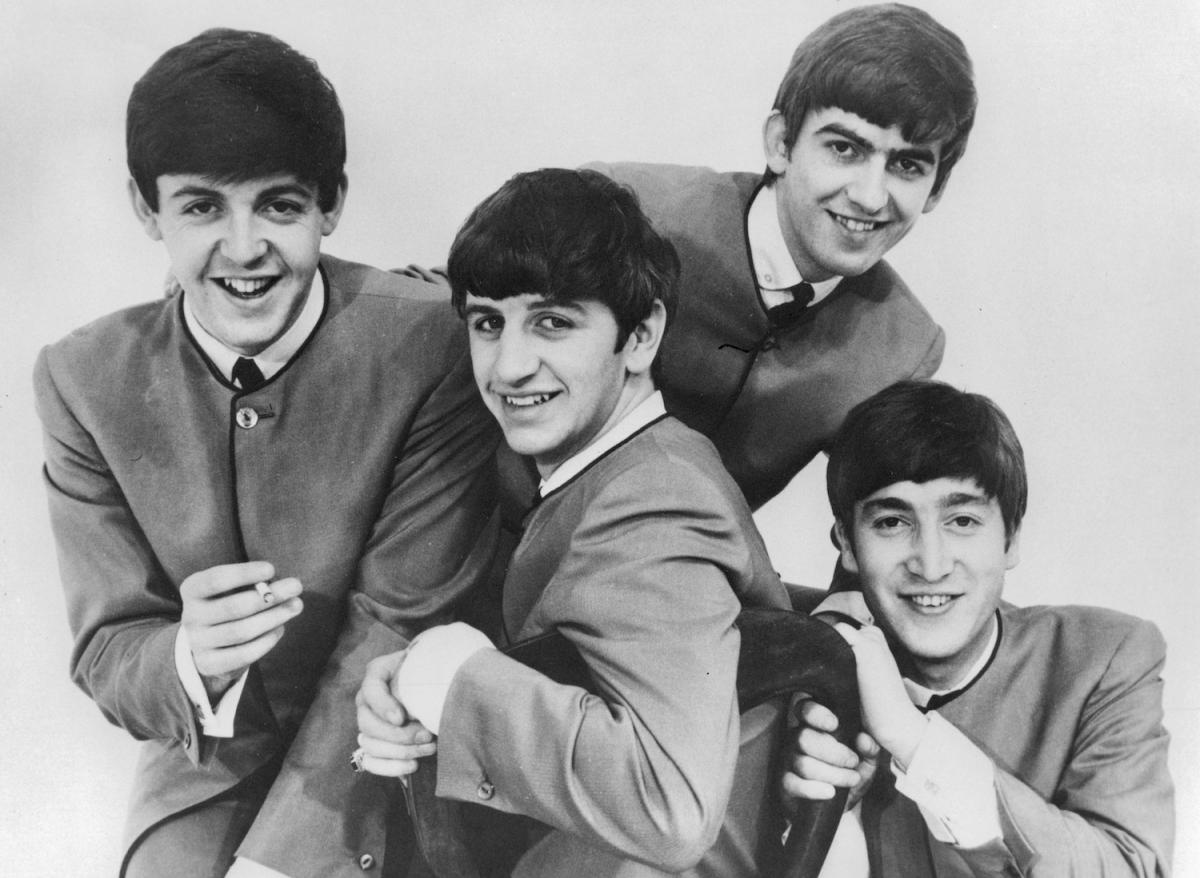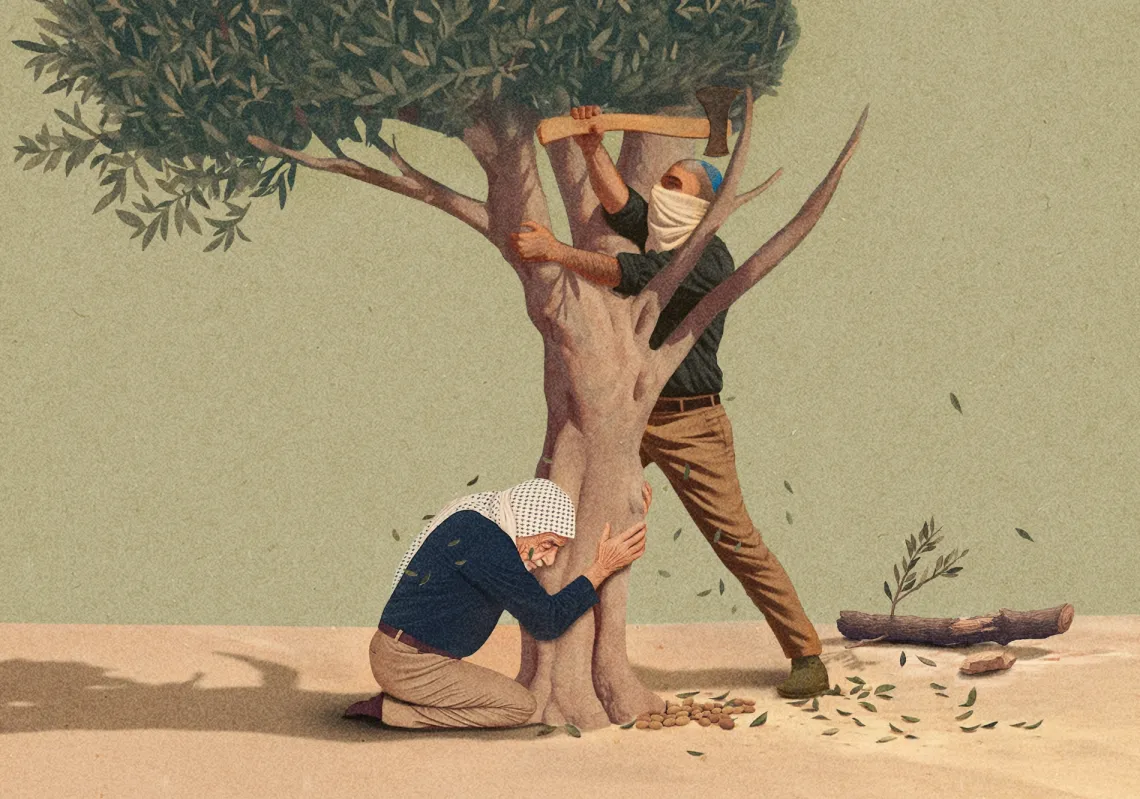JOHN EMERGES WITH NUMBER ONE HIT DESPITE MCCARTNEY’S DOMINANCE
When The Beatles released the album A Hard Day’s Night in 1964, it was clear that John Lennon was the main composer/leader of the band, as ten out of the thirteen songs were written by him. However, by the mid-1960s Paul McCartney started to rise as the more domineering voice in the group, while John would settle more towards the sidelines. That isn't to say, John stopped producing great hits post-1966 such as Happiness is a Warm Gun, Dear Prudence, All You Need is Love and Strawberry Fields Forever. But still, the fact that since 1967, seven out of the band's last 11 hits were McCartney compositions really shows the extent of Paul's ascendency from that point. Nevertheless, it was John's Come Together, that was released as the LP's single and it was his song that became a number one hit in the US while peaking at number 4 in the UK charts. This wouldn’t be the band’s last number-one single, as Paul's The Long and Winding Road released in 1970 has this honor. While this might seem like a victory for McCartney it is somewhat of a bittersweet one since his song was mired with production intervention as producer Phil Spector used an orchestra over Paul’s recording in a technique he pioneered called “The Wall of Sound” which has been criticized for rendering singers’ voices largely inaudible. Needless to say, Paul hated this edited version of the song, but this was the one that was released to the public and the one that became the group’s last hit, much to his dismay. Moreover, The Long and Winding Road’s commercial success did not reflect its critical success, as critics at the time generally had an unfavorable view of it. So while John’s last hit for the band was a song that he, the fans and critics loved, the same cannot be said for Paul’s last hit for the band. John’s other significant song, I Want You (She’s So Heavy), reflected his sound during his early solo career. Like many of his early solo songs, I Want You has a melancholic sound to it and has John really sing his heart out as if he’s therapeutically trying to get something off his chest. Examples of such songs include Mother which focuses on his feelings of abandonment from his mother, who was largely absent from his childhood and died shortly after they rekindled their relationship, and his father who left him while he was a toddler, and Cold Turkey (a song he intended for Abbey Road, but was subsequently rejected by the other Beatles) which was centered on his heroin addiction.
PAUL CONTINUES HIS DIVERSIFIED REPERTOIRE WHILE MAXWELL MAKES ENEMIES WITH OTHER THREE BEATLES
Throughout both his Beatle and solo career, Paul McCartney has displayed an impressive musical prowess that hasn’t been displayed by the other three members of the group. First of all his musical gift is reflected in his ability to play 54 instruments, moreover, he has shown the talent of writing songs in a myriad of styles. During his tenure with The Beatles, he wrote rock ballads such as Birthday and Back in the USSR, love songs such as Here, There and Everywhere and he even pioneered new musical styles such as Helter Skelter which many view as a prototype to the heavy metal genre. This menagerie of different tunes was also present in Abbey Road, as Oh! Darling, She Came in Through the Bathroom Window and The End all displayed his varied musical styles.
However, as Paul became the de facto leader of the group post-1967, other members started to resent his workaholism and his overbearing habit of making the other members record multiple takes before he was finally satisfied with his songs. The other Beatles had particularly disliked Paul’s softer, more whimsical songs such as When I’m 64 and Ob-La-Di, Ob-La-Da. John especially hated these songs and referred to them as “Paul’s granny sh*t”, the recording of the latter song in particular during the White Album sessions really aggravated Lennon. It took the band three to four days to record Ob-La-Di, Ob-La-Da as Paul’s perfectionism took the better of him and he insisted on re-recording the song from scratch twice. This eventually caused John to storm out of the studio and only to return hours later stoned out of his mind and start erratically playing the piano intro of the song, which was eventually used in the final recording. George Harrison would also quit the band during the White Album recordings, according to Starr his brief departure happened after an argument with Paul, though there is a reason to believe he may have also had a feud with John who would reportedly dismiss any of the songs he wrote for the band. While the disputes might have temporarily subsided and the White Album was eventually recorded, the seeds of discord were well planted, and would eventually come into full bloom by the Abbey Road/Let it Be sessions.
Then came Maxwell’s Silver Hammer, another one of McCartney’s so-called “granny songs”, which has a deceptively child-friendly melody accompanied by the not so child-friendly lyrics centered on a serial killer called Maxwell who murders his victims by banging a silver hammer on their heads. Whether or not you like this song, one thing is for sure, the other three members didn’t. John hated it, and has previously said in an interview how Paul had them redo it “a hundred million times”. While he was present when the other three members were recording the song, John chose not to take part in the actual recording. George and Ringo didn’t particularly like the song either, in a 1977 interview with Crawdaddy magazine Harrison made it clear that he, like John, had a disdain for Paul’s “fruity songs” and singled out Maxwell’s Silver Hammer in particular. Another reason why he hated the song was that Paul would keep adding new arrangements whenever he thought of a new one. Ringo shared similar sentiments, in a 2008 Rolling Stone interview, he stated they recorded the song for “f*cking weeks”. There is a reason why some fans dub this song as the “one that broke up The Beatles”. In a way, Paul's perfectionism and workaholism did work out for him, after he did end up having the most successful solo career having secured 9 number one hits post-breakup and 14 out of his 25 albums went platinum.
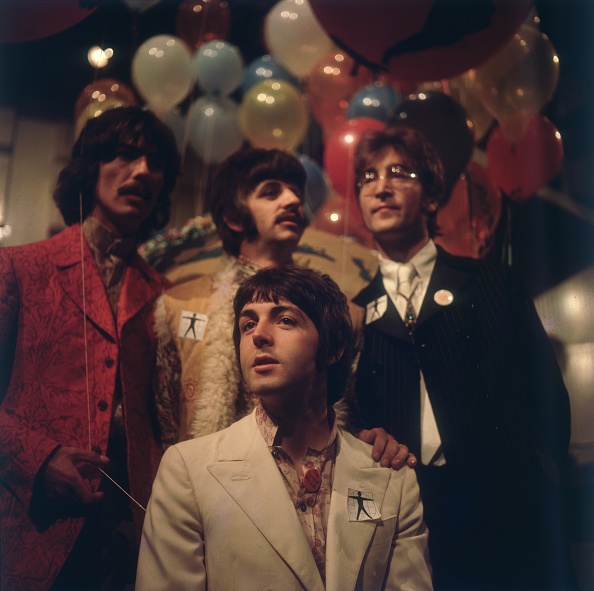
HERE COMES GEORGE WITH SOMETHING SPECIAL
As a Beatles fan, I always considered George Harrison to be the overlooked Beatle. Throughout his time with the band, both John and Paul looked down on him as a songwriter. Despite showing early promise during the band’s pre-fame days (he co-wrote In Spite of All the Danger and Cry for a Shadow in the first Anthology album), he was soon relegated to only getting to write one to two songs per album, while John and Paul got to write the majority of songs. I always think that one of the reasons why John and Paul didn’t take him as seriously as they should have was because they always viewed him as the naïve younger brother, which shouldn’t come as a surprise since George joined the Quarrymen (the skiffle band that eventually evolved into The Beatles) when he was 14, while John and Paul were 17 and 16 at the time, respectively. In many ways, I don’t think that dynamic really changed, even though they were well into their mid to late 20s post-Sgt. Pepper, but it really should have. After all, George had well proven his writing talent with such classics such as Taxman, I Want to Tell You, Within You Without You, Love You To and of course While My Guitar Gently Weeps.
Harrison would go on to demonstrate his songwriting abilities in Abbey Road, as he contributed two of the best songs to the album: Something and Here Comes the Sun. Something is more than just a love song, I think it perfectly expresses the feelings someone develops when they start falling for someone, lyrics like “Something in the way she moves, Attracts me like no other lover”, “Something in the way she knows, And all I have to do is think of her” and “You're asking me will my love grow, I don't know, I don't know” sum up these early love days perfectly, those days when you can’t quite place your finger on what attracts you to a person. Moreover, the greatest aspect of this love song is the fact that George didn’t rely on cliché phrases like “I Love You” or “You’re My One and Only”. Frank Sinatra considered Something to be one of the greatest love songs ever written and I for one couldn’t agree more. Sinatra, in fact, liked it so much that he often sang his own cover version of the song live in concert, of that isn’t a testament to George’s songwriting talent I don’t know what is.
Here Comes the Sun is another iconic song; in the album, it followed the loud and chaotic ending of I Want You (She’s so Heavy). On paper, such song arrangements shouldn’t work, but the band somehow made it work. Anyway on to the song, I love George for taking a simple concept and turning it into a relatable and expressive song. Anyone who has lived through the winter months of England can tell you how dark and gloomy it gets for those 4-5 months, hence once March comes springing and sunlight starts creeping, you can’t help but smile as you turn your back towards those long winter months: “Little darling, it's been a long cold lonely winter, Little darling, it feels like years since it's been here”. On a deeper level, it also shows how one feels when they start recovering from a dark period during their life, I’m sure most of us can relate to lyrics like “Little darling, I feel that ice is slowly melting, Little darling, it seems like years since it's been clear”.
George actually wrote the song while he took some time away from the studio and spent the day at his friend, Eric Clapton’s, Surrey home. At the time, he was feeling disillusioned by how formal life in the recording studio was getting, he gave more detail on the background of the song in the Anthology: “Here Comes The Sun was written at the time when Apple was getting like school, where we had to go and be businessmen: 'Sign this' and 'Sign that'. Anyway, it seems as if winter in England goes on forever; by the time spring comes you really deserve it.” It is unfortunate that the Apple Corps studio could never become a warm, kindred place for George and the rest of the Beatles again and that all four felt like they needed a permanent holiday away from each other. It is also a shame that John and Paul still didn’t show George the respect he deserved as a songwriter, however, a recent article in the Guardian did indicate that they started appreciating him more. The article focused on a tape recording the band did shortly after the release of Abbey Road, in which they started talking about their plans after the album. Apparently, John and Paul had finally agreed to give George his fair share of songs on future albums, as three members would get four songs each (Ringo would also get to write two songs per album if he wanted). Funnily enough, the tape did show the two frontmen still berating George as Paul gave him a backhanded compliment: “I thought until this album that George’s songs weren’t that good,” to which George responded: “That’s a matter of taste. All down the line, people have liked my songs.” John would then step in not to defend George, but reprimand Paul's Maxwell's Silver Hammer song, indicating that no one "dug" it.) This again shows the underlying tensions that came to define the latter years of the Beatles. While John and Paul never truly gave George the recognition he deserved, he did get the last laugh soon after the breakup when he was the first Beatle to achieve a number one hit as a solo artist with My Sweet Lord a song from his 1970 album All Things Must Pass.
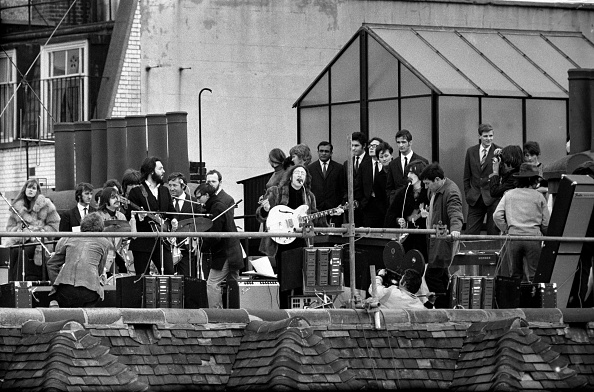
RINGO GETS A LITTLE HELP FROM HIS FRIEND
While Ringo Starr has written the fewest songs for the group, he would still get to sing at least one song (usually Lennon-McCartney compositions) per album, as such his voice would become part of the band's sound (there's a reason why Mick Jagger of the Rolling Stones referred to The Beatles as the four-headed monster). Moreover, his songs both during his Beatles and solo career have their own charm to them and usually never fail to give listeners a warm fuzzy feeling. His first songwriting attempt came in the White Album in the form of Don’t Pass Me By, an endearing ditty that displayed Starr’s love for the country-western genre. Abbey Road contained his second and final song entitled Octopus’s Garden, which he wrote when he briefly quit the band and took a family trip to Sardinia. During the holiday, he had a seafood dish containing octopus, which he had never eaten before and it was this meal which gave him the idea of how delightful it would be to be under the sea away from life’s hardships and troubles. After he returned to the band, he started composing the music for the song with the help of George Harrison. Many doubted Starr's ability as a songwriter, but he went on to prove his detractors wrong during his solo career wrote/released several hits such as It Don’t Come Easy, Photograph and Early 1970. The former two songs were also a testament to his everlasting friendship with Harrison as he served as their co-writer.
COULD THE BAND HAVE BEEN SALVAGED?
The recent Guardian article that I cited in George’s section seems to allude that the Beatles tried to prevent the band from breaking up. However, this appears to be a brief moment of denial from the band members, and I’m sure deep down all four members knew that they were beating a dead horse at this point. Anyone who is as obsessed with The Beatles as I am has likely seen the 1970 documentary film Let it Be, which showcased the band rehearsing and recording songs mostly from Let it Be, and some from Abbey Road. Likewise, anyone who has seen the film would have seen that the band was at its wits end, some scenes that come to mind are the one in which George and Paul were having an argument over the former’s guitar playing, or John not paying attention to George presenting his new song I, Me, Mine and instead opts to start making out with his girlfriend Yoko Ono and then subsequently waltzing with her while Harrison was singing.
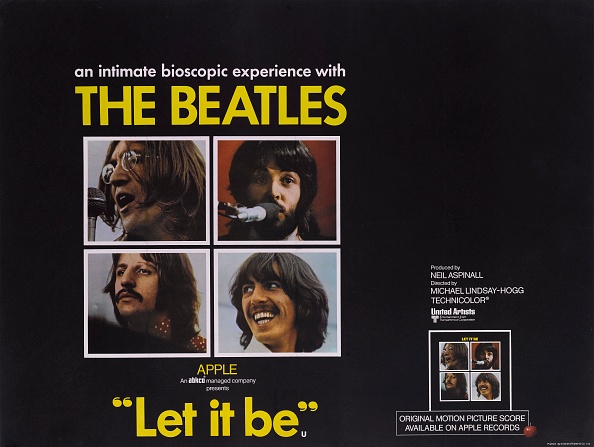
Paul was too controlling, John just didn’t seem to care anymore and George and Ringo were frustrated with the fact that they weren’t being represented in the albums. One of the poignant scenes in the film was The Long and Winding Road rehearsal; the scene had a quite somber mood to it as all members of the group just seemed tired, depressed and apathetic. They were no longer the four young beady-eyed Liverpudliuans who went on stage to sing feel-good songs such as Twist and Shout and I Want to Hold Your Hand, they were now indistinguishable from disillusioned employees who have been working 9 to 5 for countless years. Even Paul who was practicing one of his own songs had this indescribable melancholy look in his eyes, which was almost signaling to the audience that it was all over for the group, it was just of a matter of when, rather than if. In all honesty, if I could accurately describe the scene, it was almost like a funeral service for The Beatles. While the band’s demise was inevitable, at least they gave us two great albums (Abbey Road and Let it Be) before all four members parted their own ways. In the end, the love they took was equal to the love they made.
